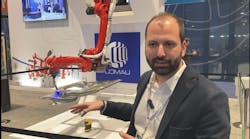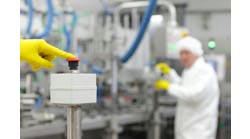Does it annoy you when automation suppliers charge for technical support? Do you think this service should be free, or at least built into the cost of the original product? If so, read on and find out how to get free service.
Before you get too excited, we're talking about free technical support here, and not about free engineering services. The line between technical support and engineering services can be blurry, but you probably know when you're about to cross it, as do most automation suppliers that you're dealing with.
"Beyond our standard and free product support, there are instances requiring billable services," notes Ron Baysinger, market development manager for control and industry solutions at Phoenix Contact (www.phoenixcontact.com). "These instances include custom application support, complex solution integration and on-site service."
[pullquote]Free service often means higher-cost products, but you should be able to judge upfront if prices are fair. "Some of the cost of free phone service is built into the price of the products, but it's Delta's view that providing good service is an investment that promotes good long-term customer relations," says Bill Savela, marketing director at Delta Computer Systems (www.deltamotion.com).
In theory, the best prices are offered by companies that provide no service, or by those that charge for service. In practice, this isn't the case. Almost all automation firms feel compelled by machine builder, robot builder and process skid builder OEMs to offer service—albeit at varying levels of quality and price.
In the traditional automation sales model, the local distributor provides free service, with the vendor providing backup assistance, often for a fee. For those vendors using a different distribution model, service could be free.
"Our direct-sales model means we don't have field personnel, so free telephone support is critical," says Stewart Terhorst, member of a business development team at AutomationDirect (www.automationdirect.com). "We consider this part of our responsibility to our customers, as it helps them get the most out of our products. Our free technical support helps our customers lower their total automation spend, while also being able to quickly troubleshoot. We work hard to maintain a very efficient business model so we can offer not only free support, but also detailed documentation and online learning tools."
Another company that offers free technical phone support is Opto 22 (www.opto22.com), and it throws in free software and training as well. "Our control programming software is available as a free download," says Tom Edwards, senior technical advisor at Opto 22.
"Another free piece of software lets OEMs run the strategies they've created in an environment that simulates an actual controller. We also provide no-charge hardware and software training at our corporate headquarters in Southern California. This consists of a three-day class in which we cover configuration, networking, diagnostics and troubleshooting."
Many software suppliers charge for service, typically via annual licensing fees, but there are exceptions.
"Support shouldn't be a profit center for the supplier," asserts Marcia Gadbois, president of InduSoft (www.indusoft.com).
"Support needs vary among our customers, but what never changes is the need for knowledgeable support staff familiar with every aspect of the software," Gadbois adds. "It's not only the availability of the support that matters to customers, but the quality. In order to guarantee service to all who need it, we maintain a network of exceptional support team members, and we're able to offer free support during normal business hours, as well as a paid option for 24/7 support. The fee for 24/7 assistance is intended to cover time and labor, rather than to generate profit."
Price and performance are key drivers when purchasing automation components, and service is becoming a driver, too, particularly as OEMs learn to run leaner.





